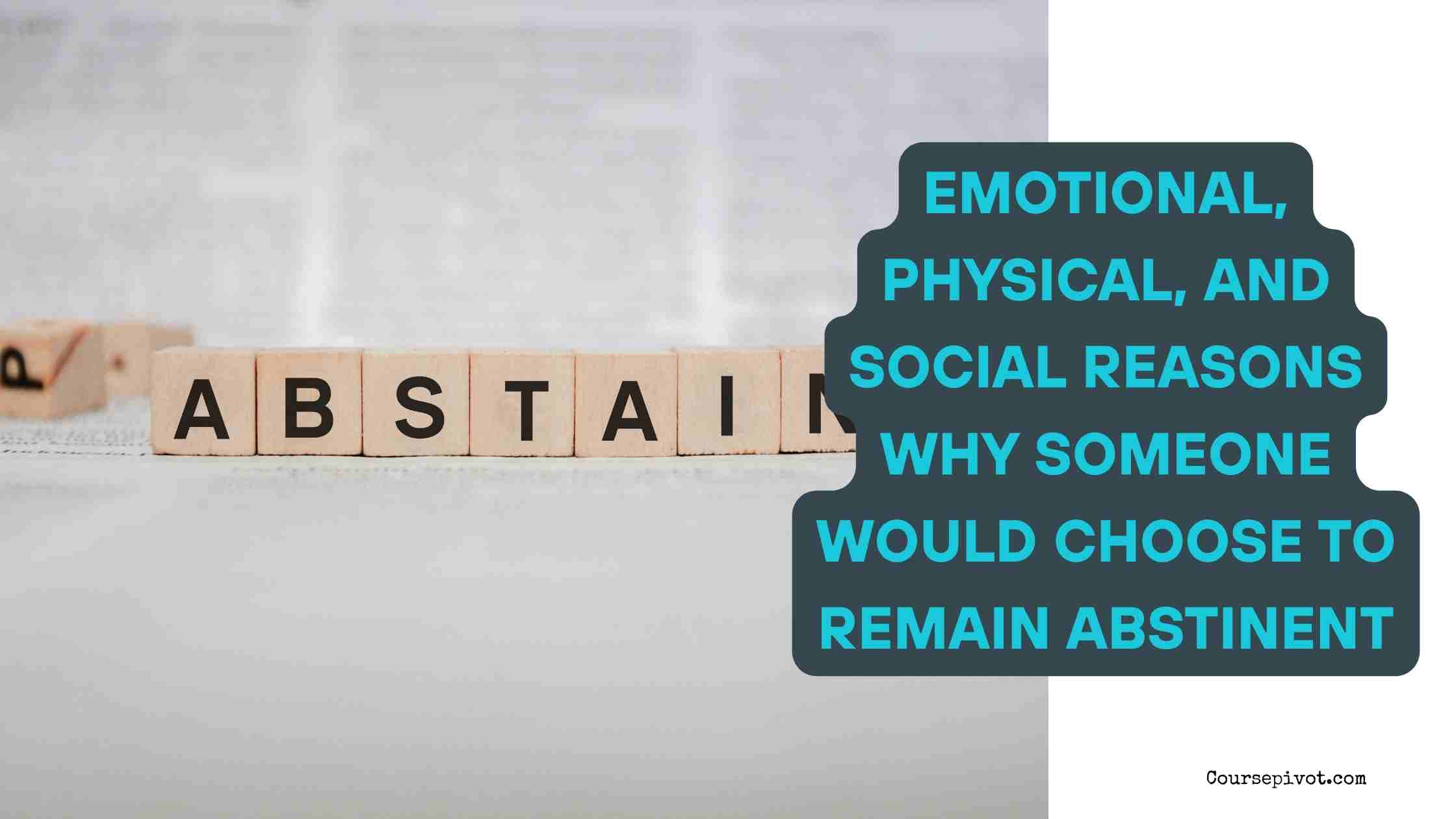
Emotional, Physical, and Social Reasons Why Someone Would Choose to Remain Abstinent
Abstinence isn’t just a word people throw around in health class. For many, it’s a personal, powerful choice that’s rooted in real-life experiences, beliefs, and future goals. So why would someone decide to remain abstinent—emotionally, physically, and socially?
I’ve had this conversation with friends, classmates, and even people older than me. Each story is different. But patterns emerge. Whether it’s about protecting one’s heart, staying healthy, or avoiding social pressures, abstinence carries deep meaning for those who practice it.
- Read our blog on 13 Surprising Reasons Your Partner Doesn’t Want Sex
You are saying, explain some of the emotional, physical, and social reasons why someone might choose to remain abstinent—and why it’s a decision that deserves understanding, not judgment.
Emotional Reasons for Choosing Abstinence
Staying emotionally healthy is a major reason some people remain abstinent. Emotional intimacy can be complicated—and sex can intensify emotional bonds, making breakups more painful or confusing.
Here are some common emotional motivations:
- Avoiding heartbreak: Some people choose abstinence to avoid the emotional pain that can come from becoming too attached too quickly.
- Building self-respect: Abstinence can be an act of self-love, where a person prioritizes their emotional well-being above temporary satisfaction.
- Spiritual or moral values: Emotional peace often comes from living in alignment with one’s personal or religious beliefs.
- Preserving trust: Some prefer to wait until they are in a fully committed relationship or marriage to avoid betrayal or disappointment.
- Avoiding emotional manipulation: When sex is off the table, it’s easier to see if someone values you for who you are, not what you can give.
Choosing abstinence emotionally means protecting your mental space and preserving your ability to give love deeply—at the right time, to the right person.
Physical Reasons for Choosing Abstinence
The physical side of abstinence is often what people focus on first—but it goes deeper than just avoiding pregnancy.
Some powerful physical reasons include:
- Preventing STIs and infections: The most foolproof way to prevent sexually transmitted infections is through abstinence.
- Avoiding unplanned pregnancy: Abstinence eliminates the risk of becoming pregnant before someone feels ready.
- Protecting bodily autonomy: Some people want to remain abstinent until they fully trust someone with their body.
- Health recovery: Those healing from trauma or medical issues may choose abstinence to focus on physical and emotional healing.
- Better energy and focus: Some individuals report feeling more physically energized and focused when they aren’t sexually active.
Staying physically abstinent isn’t about fear—it’s often about power. It’s a decision to take charge of your health and body on your terms.
Social Reasons for Choosing Abstinence
Social influences can shape our decisions in big ways. But surprisingly, many people remain abstinent not just because of pressure—but because of positive values and long-term thinking.
Here’s how social factors come into play:
- Avoiding peer pressure drama: Some people choose abstinence to stay away from messy situations, rumors, or toxic circles.
- Family expectations or cultural norms: Cultural or family traditions can reinforce the value of waiting.
- Focusing on academics or goals: Young adults often stay abstinent to avoid distractions and stay on track with life ambitions.
- Protecting reputation: For some, staying abstinent is about maintaining a sense of dignity or self-respect within their community.
- Setting an example: Being abstinent can be a leadership decision—for mentors, older siblings, or those in youth groups.
Social abstinence isn’t always about restrictions. It’s about making a personal choice in a world that often pushes for the opposite.
Why Abstinence Is a Personal, Empowering Choice
Abstinence isn’t weakness. It’s not fear. And it’s definitely not outdated.
Whether someone chooses abstinence for emotional, physical, or social reasons, their choice reflects intentionality, self-control, and vision. It takes strength to stand firm in what you believe, especially when everything around you says otherwise.
So the next time you hear someone say they’re abstinent, don’t assume. Ask yourself: Could I respect my mind, body, and spirit enough to say no, too?
Because abstinence isn’t about what you give up—it’s about what you protect.
Cite this article
You can copy and paste your preferred citation format below.
Martin, L. & Arquette, E.. (2025, May 25). Emotional, Physical, and Social Reasons Why Someone Would Choose to Remain Abstinent. Coursepivot.com. https://coursepivot.com/blog/explain-some-emotional-physical-and-social-reasons-why-someone-would-choose-to-remain-abstinent/



